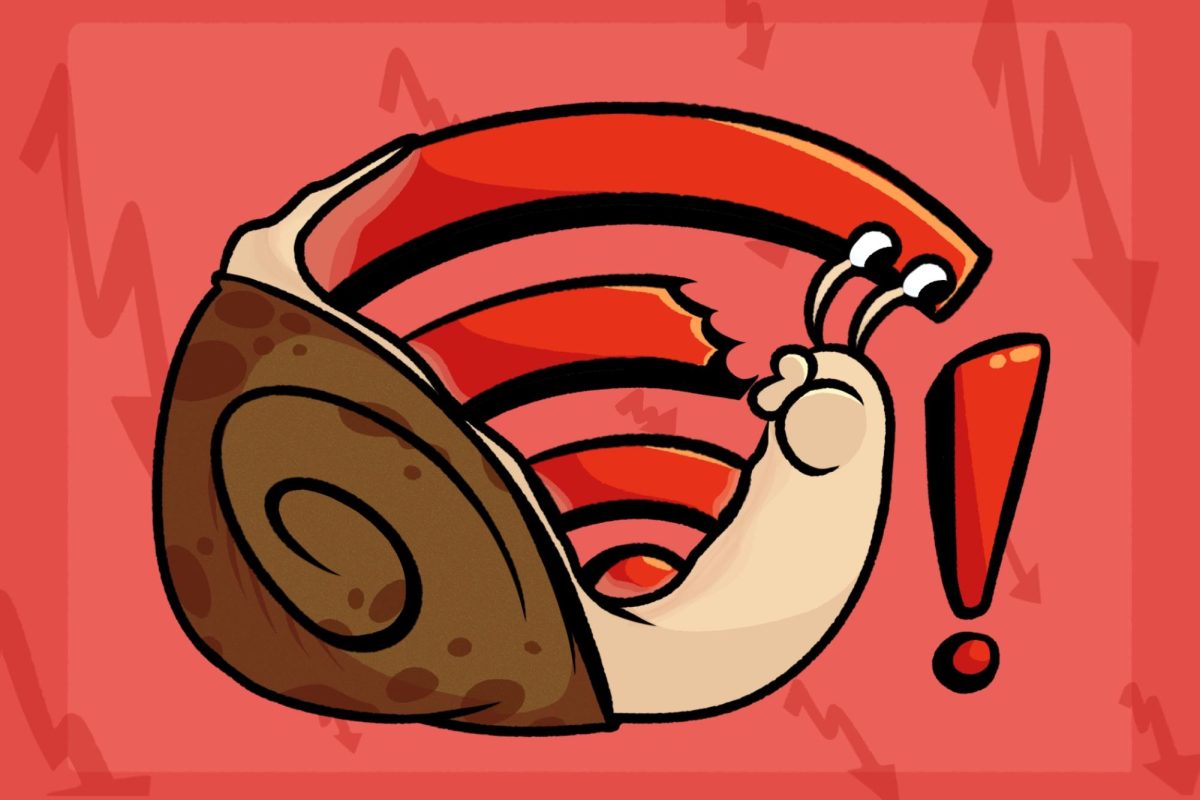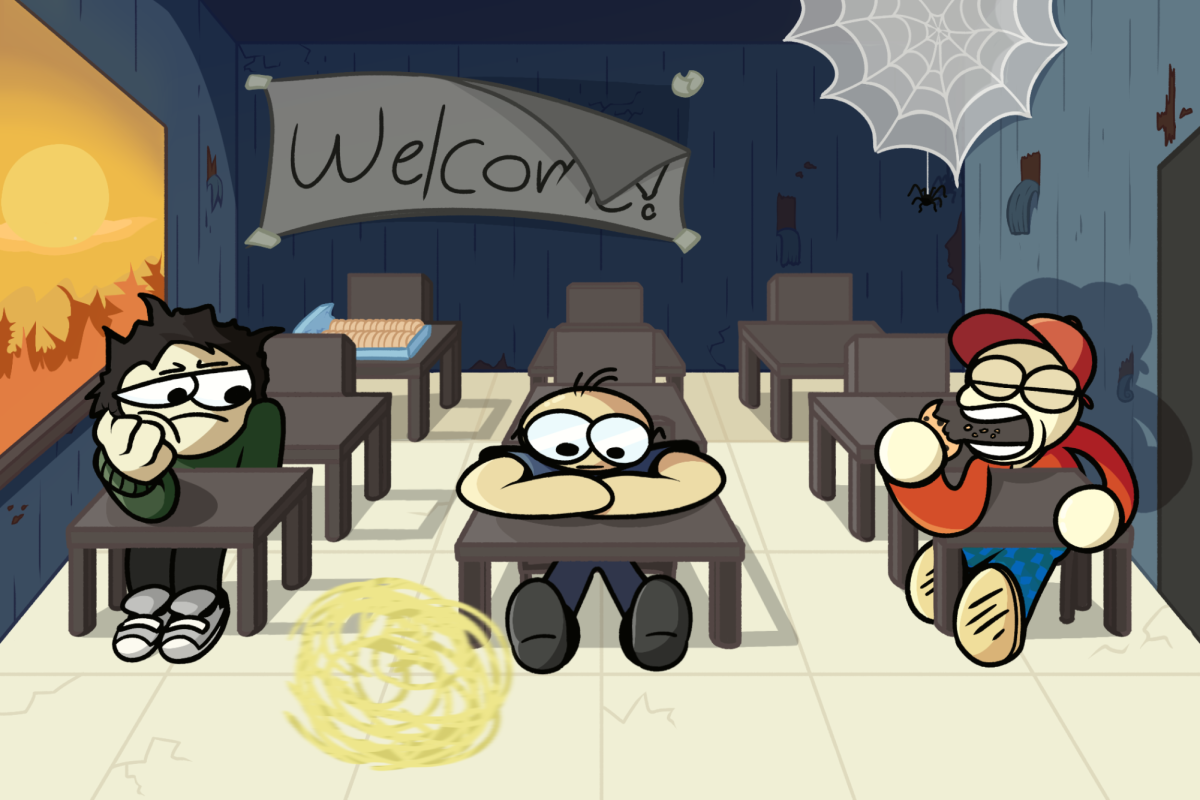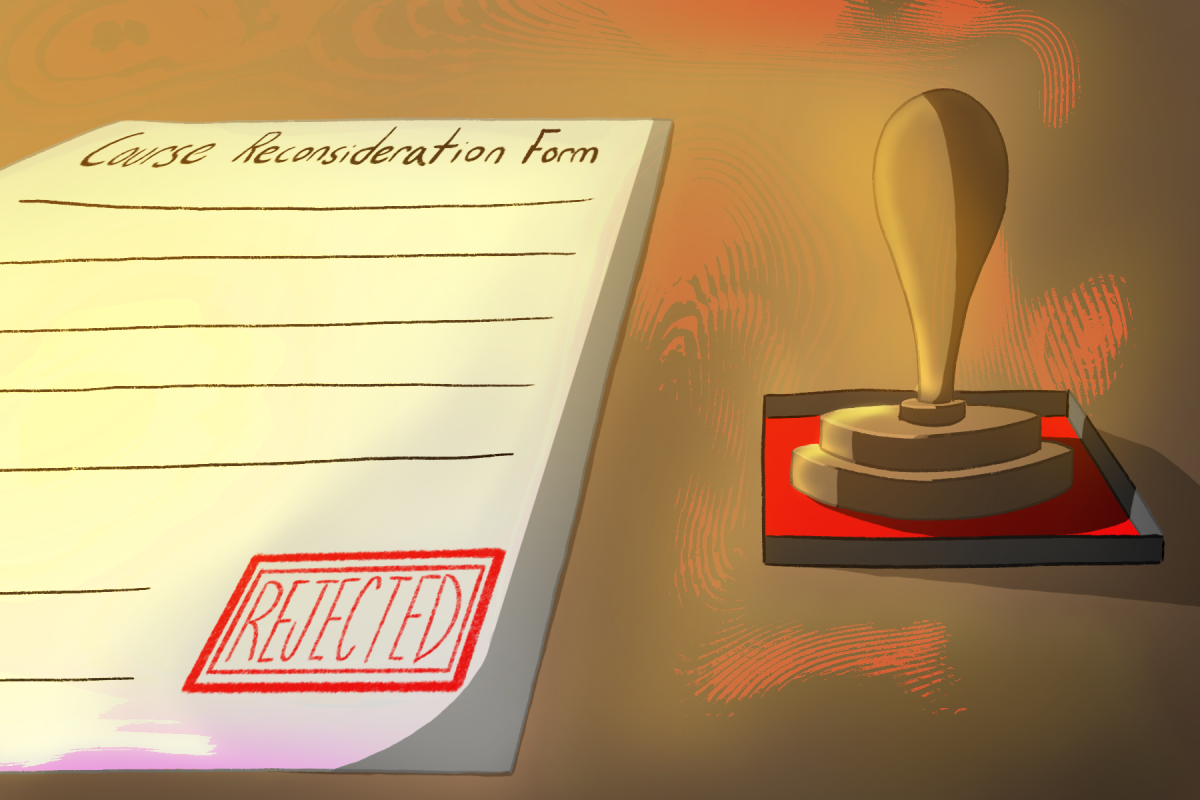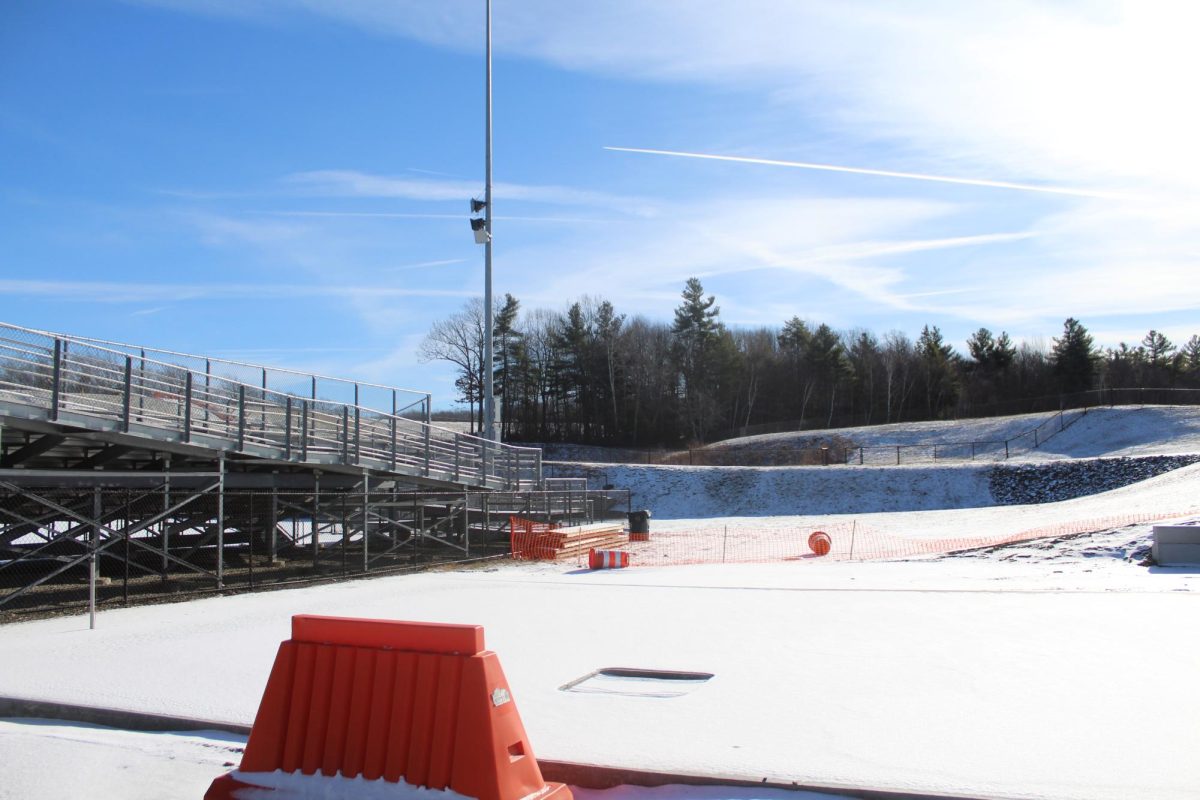In WRHS’s increasingly technology driven environment, many Mountaineers find that the school wifi has impacted their daily lives. Often, there are issues such as documents not loading or class activities not being available.
“Classwork never loads and I can never get stuff done,” said junior Olivia Goulet.
Senior Ava Loedel agreed.
“It [the wifi] is really bad. Nothing will load,” said Loedel.
But Principal Michael Pratt said the wifi has improved drastically over the last few years, especially during the summer before the 2024-2025 school year.
“New routers were installed in the cafeteria and the wifi was tweaked to manage the different networks: staff, guest and student to provide students with the right networks without overloading one over the other,” said Pratt.
Tenth grade assistant principal Josue Delgado said the wifi had been constantly altered.
“There’s a lot of tough areas in the school,” said Delgado. “But Mr. [Bruce] Yeaton and Mr. Murray are doing a lot to fix them. They put in a lot of hours and weekends to make it [the wifi] work.”
Technology Associate Pat Murray said the largest problem regarding the school’s wifi lies in the number of electronics on it.
“Too many devices on one router or wifi create a bottleneck,” said Murray. “When on a Chromebook with lots of tabs, each of those tabs is taking up power. Most students don’t think it is a big deal but, if you’re watching something and doing classwork, it adds up.”
Math teacher Katherine Pearson has a classroom in the downstairs E-hallway, right beside the cafeteria.
“The wifi is good when it is not lunch time,” said Pearson. “I have a wifi hub, IT installed it. I think everyone has one,” said Pearson. “I think the cafeteria is connecting to wifi through my hub.”
Math teacher Brad Bentz has a classroom in the E-hallway upstairs. He said that he did not notice problems during lunch block.
“I would score the wifi a seven out of ten,” said Bentz, who has a router. “It has its days.”
History teacher Jochen Welsch has a classroom in the downstairs C-hall.
“It [the wifi] has been okay, but I’m stuck between two routers [hubs] so I lose connection a lot,” said Welsch. “Sometimes I can’t do what I had planned for class as the staff wifi is slow.”
Other teachers who rely on the internet less experience a minimized, but still noticeable impact. Pearson notes the effects of the wifi.
“It [the wifi] was slow for my seniors working on a project during long block,” said Pearson.
Delgado said he noticed the wifi’s decline during lunch as well.
“The wifi had a rough start. There were a lot of issues. It’s getting better though, except for lunch time,” said Delgado.
Sophomore Pemberley Mongeau said she experiences the most problems after school.
“In my experience, it [the cafeteria] is the worst. The hallway by the gym is slow too. You can’t get anything done there,” said Mongeau.
Freshman Ellie Monahan said messages sent in the morning often do not go through until she leaves the school and reaches home.
“It’s definitely hard to send messages on my phone and my Chromebook takes awhile to load,” said Monahan. “It is slower than the Central Tree wifi too.”
This spring, the Regional’s Advanced Placement testing will be done fully online for the first time.
“It [Advanced Placement testing] is something we are already looking into and finding the best rooms for in regards to the wifi. Some classes have over 100 kids,” said Delgado. “Advanced Placement Spanish recordings online went fine last year. I think we can make it work. A lot of the kinks were worked out with computer science exams last year.”
For Delgado, the wifi has made answering emails difficult, but it also helped him reduce his screen time.
“It [the wifi] has helped me be out in the halls, walking around and interacting with students, which I’ve wanted to do more. I’ll take a lap or two while my email loads,” said Delgado.
“While networking, I’ve noticed certain settings that don’t have to be how they are. “Using ethernet helps reduce the amount of devices on the wifi,” said Murray.
Murray said the guest wifi has been purposely made slow so the staff and student networks could be faster. Bentz decided he would test the staff wifi against the guest wifi.
“Currently, the staff wifi runs at 62 megabits per second. The guest wifi is at six and a half megabits per second,” said Bentz.
Categories:
Don’t forget to close your tabs: The school’s wifi
Natalie Lamberton, Staff Reporter
January 9, 2025
7
More to Discover
About the Contributors

Natalie Lamberton, Staff Reporter / Editor
Natalie is a sophomore and first-year Echo staff member. She enjoys cats and writing.

Carlos Chancay, Illustrator
Carlos is a Junior who has been working with the Echo since Sophmore year. He enjoys drawing, playing with his cat, and talking with friends.









